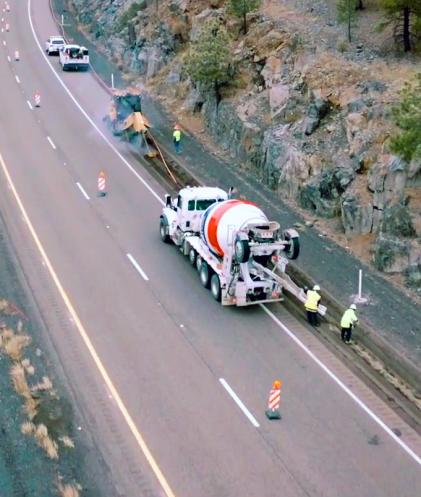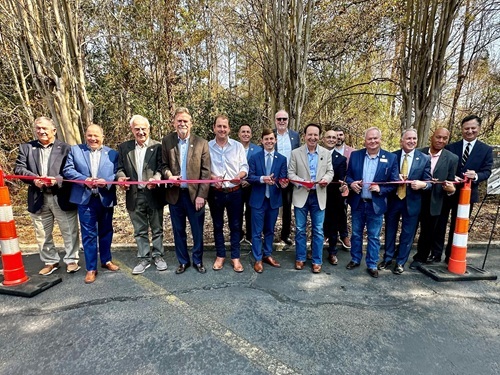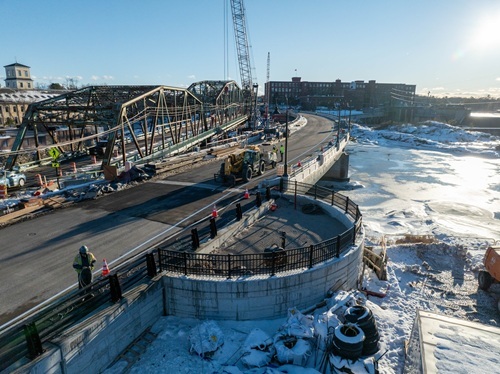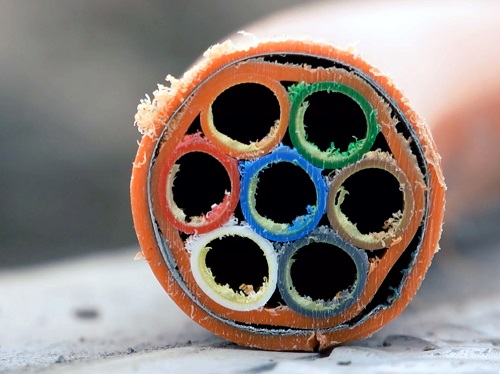The formation of a public-private partnership between the Arizona Department of Transportation, the Arizona Commerce Authority, and eX2 Technology aims to significantly expand broadband internet access in rural areas of Arizona.
[Above photo by Arizona DOT]
The 25-year agreement calls on Nebraska-based eX2 Technology to operate, maintain, and lease space in fiber-optic conduit installed along I-17 and I-19; installing similar conduit along much of I-40 in late 2024.
This partnership represents the next step in leveraging state-owned, open-access conduit installed by Arizona DOT to expand broadband internet access to homes and businesses in rural parts of the state, the agency said.

It also complements a state law that allows private broadband providers to install, operate, and maintain telecommunications equipment within Arizona DOT’s right of way using conduit installed along state highways – often called “middle-mile fiber-optic infrastructure.”
“This investment of a robust statewide middle-mile program will connect Arizonans in rural and tribal lands to quality broadband, providing families access to good jobs, quality health care and education, and positioning Arizona to continue its dynamic growth for years,” noted Governor Katie Hobbs (D) in a statement.
In addition to the rural broadband connectivity, Arizona DOT said it plans to use these new fiber-optic conduit to provide intelligent transportation systems technology, such as overhead message boards, traffic cameras, weather stations and wrong-way driving detection. The infrastructure also will help lay the groundwork for emerging technologies like connected and automated vehicles, the agency noted.
Many state departments of transportation across the country are engaged similar efforts to expand broadband access.
For example, in January, the Colorado Transportation Commission approved a lower fee schedule for access to roadway rights-of-way maintained by the Colorado Department of Transportation to expand the ability of third parties to install fiber optic cable for broadband access and service statewide.
This adopted fee schedule, more than 90 percent lower than the version initially proposed, makes Colorado DOT property available for broadband development in accordance with the 2022 Executive Order of Governor Jared Polis (D) so residents can access high-speed internet in every corner of the state.
More broadly, the American Association of State Highway and Transportation Officials provided suggestions to the U.S. Department of Commerce in a February 2022 letter on how to improve the role state DOTs play in broadband projects.
AASHTO said federal agencies should avoid a “one size fits all” approach to broadband projects and promote public-private partnerships between state agencies and broadband providers to expand future deployments.
To help streamline broadband projects, the Federal Highway Administration published a final rule in December 2021 that allows for the installation of broadband cable during road construction projects to avoid the need for further excavation in the future.
Often referred to as the “dig once” rule regarding broadband deployment, the FHWA said this approach could minimize cost and disruption to the traveling public.
 States
States
Louisiana Celebrates Completion of $30M Bridge Project
February 20, 2026 States
States

